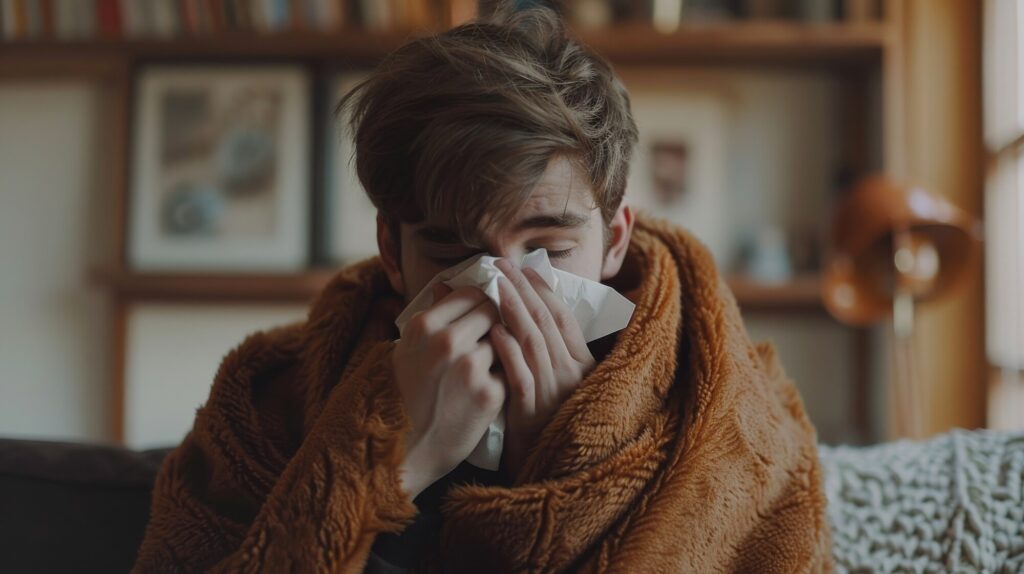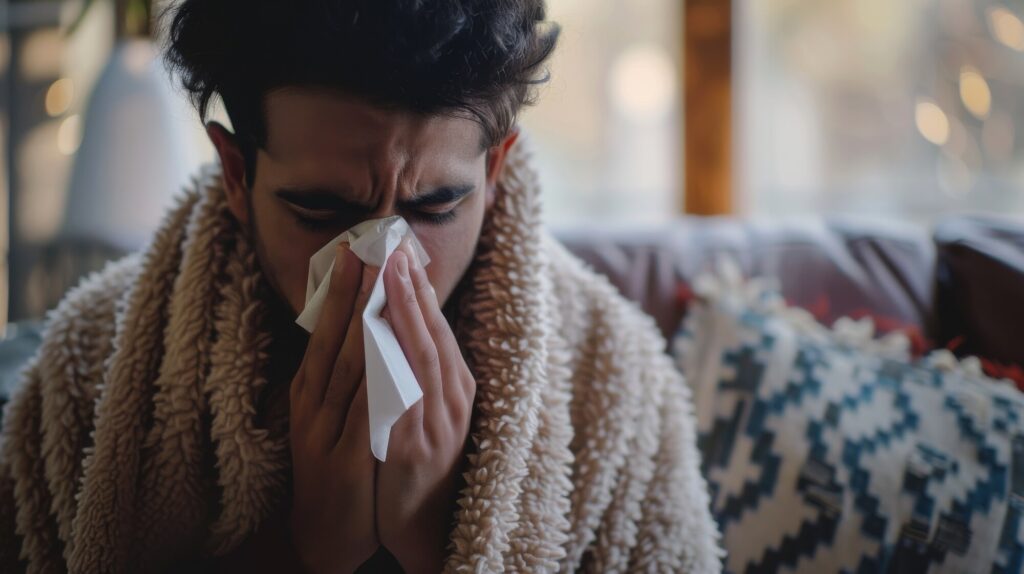Sleeping with a fan on at night might seem like a quick solution to staying cool during warm weather, but recent insights suggest that it can have several negative effects on your health and sleep quality. Here are some key reasons why you might want to reconsider using a fan while you sleep:
- Allergy Aggravation: Fans can stir up dust, pollen, pet dander, and other allergens in the air, worsening allergy symptoms like congestion, itchy eyes, and sneezing. Dust and allergens may also accumulate on the fan blades, which can be released into the air as the fan operates.

- Sinus Irritation: The constant airflow from a fan can dry out your mouth, throat, and sinuses, leading to increased mucus production, congestion, headaches, and sore throats. This is particularly troublesome if you are already dealing with allergies or illness.

- Stiff or Sore Muscles: The direct airflow from a fan, especially if positioned near your face or neck, can cause muscle stiffness or soreness by cooling the muscles too much during the night.

- Dry Skin and Irritated Eyes: Prolonged exposure to a fan’s air can dehydrate your skin and eyes, leading to dryness, irritation, and even discomfort, particularly for people with sensitive skin or eyes.

- Increased Congestion: The airflow from a fan can dry out the nasal passages and throat, leading to increased mucus production, which may result in congestion or more intense snoring.

- Noise Disruptions: Even quiet fans can create a steady hum that disrupts the sleep of light sleepers or those who prefer a completely silent environment. This can reduce sleep quality by causing fragmented or shallow sleep.
- Interrupted Sleep: Fans may create air movement that leads to sleep disturbances, causing you to wake up during the night.

- Limited Cooling Effect: Unlike air conditioners, fans don’t actually lower the room temperature; they only circulate the air. In very hot conditions, this can leave the room feeling just as warm, with the fan providing little relief.
To sleep cooler at night, consider alternatives like breathable bedding, cooling mattress pads, or even a humidifier to reduce the drying effects of a fan. A cooler room temperature between 65-68°F is recommended for optimal sleep. Ultimately, it’s important to find a balance between comfort and sleep quality for a restful night.



